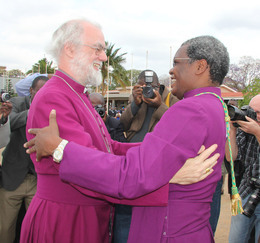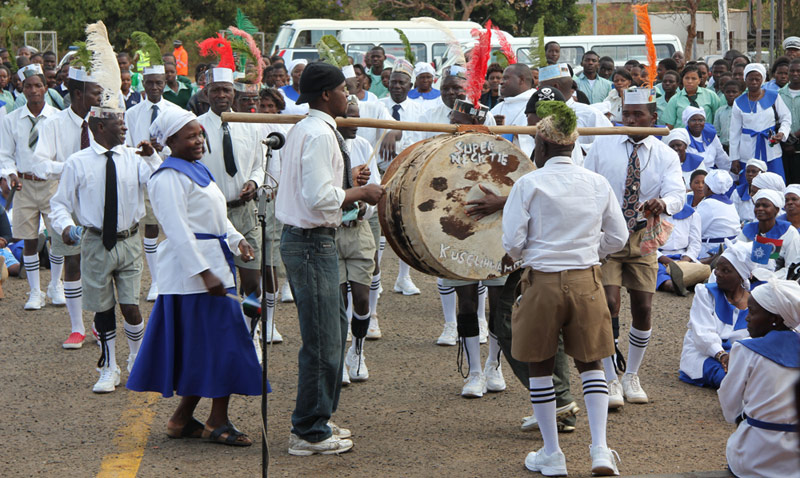Archbishop Rowan arrives in Malawi
 Archbishop Rowan and the Rt Revd James Tengatenga, Bishop of Southern Malawi
Archbishop Rowan and the Rt Revd James Tengatenga, Bishop of Southern Malawi Thursday 6th October 2011
The Archbishop of Canterbury, Dr Rowan Williams, arrived on Thursday afternoon in Blantyre, Malawi at the start of his visit to the Church of the Province of Central Africa.The Archbishop was given a warm greeting by Bishop James Tengatenga and Archbishop Albert Chama at Chileka Airport. Dr Williams stepped straight off the plane into a brief press conference, in which he thanked the Malawi Church for the honour of the invitation and expressed his deep gratitude at being able to celebrate with them the 150th anniversary of a Church that was founded and still works for human dignity for all:
“The Church today in this country still plays a deeply significant part in community development, in education, in grassroots agricultural development, in the empowerment of women and young people - I am here to give thanks to God, with you, for all that work. I am here to pray with you for a Church that will continue responding to God’s call in that way in the future, and to learn from what you do as I go around and visit various projects in different parts of the country."
Dr Williams was then treated to a traditional display of singing and dancing before heading off to begin his visit, starting with a prayer at the shrine of Bishop Charles Mackenzie located in St Paul’s Cathedral, Blantyre.

Bishop Charles Mackenzie (1825-62) was a Church of England bishop of Central Africa. Born at Portmore, Scotland, he was educated at St John's College and Caius College, Cambridge. In 1855 he went to Natal with Bishop Colenso and served as Archdeacon, working among the English settlers until 1859. In 1860 he became head of the Universities' Mission to Central Africa and was consecrated bishop in St George's Cathedral, Cape Town, in 1861. Following Dr David Livingstone's request to Cambridge, Bishop Mackenzie became the first missionary bishop in Nyasaland - now Malawi.
Mackenzie established a mission station at Magomero, near Zomba. He worked among the Mang'anja people, and directly opposed the slave trade. Bishop Mackenzie died in January 1862 after contracting malaria.
